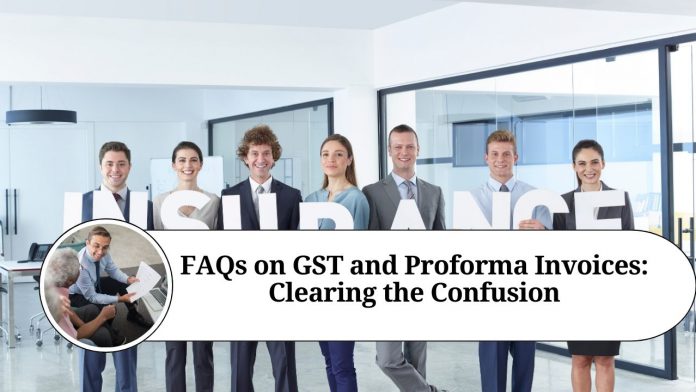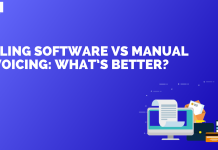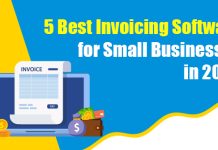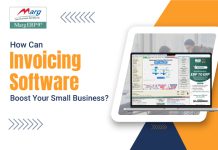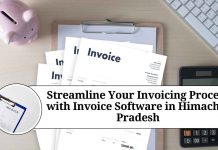Understanding GST on Proforma Invoices: A Comprehensive Guide
In the world of business, proforma invoices play a crucial role in facilitating smooth transactions and establishing the terms of a potential sale. However, when it comes to taxation, particularly under the Goods and Services Tax (GST) regime, there can be confusion regarding the treatment of proforma invoices. In this blog, we will delve into the intricacies of GST on proforma invoices and shed light on the key considerations businesses should keep in mind.
What is a Proforma Invoice?
Paragraph: Before we dive into the complexities of GST on proforma invoices, let’s first understand what a proforma invoice is. A proforma invoice is a document issued by a seller to a potential buyer before the completion of a transaction. It outlines the details of the goods or services being provided, including quantity, price, terms of sale, and other relevant information. Although a proforma invoice resembles a commercial invoice, it is not a legally binding document and is primarily used for informational purposes, such as facilitating customs clearance or securing financing.
GST Treatment of Proforma Invoices Paragraph:
Under the GST framework, proforma invoices are not explicitly recognized or governed. The GST laws primarily focus on tax liability arising from the supply of goods or services, which occurs at the time of the actual supply. Since a proforma invoice does not represent the final supply, it does not attract GST liability. Therefore, from a GST perspective, proforma invoices are not subject to tax or considered for tax credit calculations.
Impact on Input Tax Credit (ITC) Paragraph:
As proforma invoices are not considered for GST purposes, businesses should exercise caution while claiming input tax credit (ITC) based on these invoices. ITC can only be claimed on tax invoices, which are issued upon the completion of a supply. If a supplier issues a proforma invoice and the recipient claims ITC based on it, it may lead to complications during GST audits or assessments. To ensure compliance, businesses should ensure that ITC is claimed only against valid tax invoices.
Proforma Invoice and Advance Payments Paragraph:
In certain scenarios, businesses may request advance payments from buyers before the actual supply of goods or services. These advance payments are typically covered by a proforma invoice. Since a proforma invoice is not considered a tax invoice, it cannot be used for charging GST on advance payments. However, businesses must be mindful of the GST implications when receiving and accounting for advance payments. GST on advance payments is generally applicable based on the receipt of payment or issuance of a tax invoice, depending on the nature of the transaction.
Importance of Accurate Record Keeping Paragraph:
Given the complexity surrounding GST on proforma invoices, maintaining accurate records becomes crucial. Businesses should ensure that proforma invoices are clearly marked as such and not confused with tax invoices. It is essential to retain all proforma invoices, along with the corresponding tax invoices, to substantiate the ITC claims and comply with GST regulations. By maintaining meticulous records, businesses can avoid potential issues during audits and demonstrate their adherence to the GST framework.
Conclusion:
Proforma invoices serve as essential documents in business transactions, outlining the terms of a potential sale. However, when it comes to GST, proforma invoices do not attract tax liability and are not considered for ITC claims. Businesses must exercise caution and differentiate between proforma invoices and tax invoices to ensure compliance with GST regulations. By maintaining accurate records and understanding the nuances of GST on proforma invoices, businesses can navigate the complexities of taxation and facilitate seamless transactions.
Read More Useful Content:
- Top Benefits of E-Invoicing Software For Your Business
- Best e-Invoicing Software to Simplify Your GST e-Invoicing
- E-invoicing – Guide On E-Invoicing System In India
- How to Generate Electronic Invoicing (e-Invoicing) in Marg ERP Software
- GST E-invoice
Frequently Asked Questions
A1: A proforma invoice is a document issued by a seller to a potential buyer before the completion of a transaction. It provides information about the goods or services being offered, including quantity, price, and terms of sale. It is not a legally binding document and does not attract GST liability. On the other hand, a tax invoice is a legally recognized document issued after the completion of a supply. It includes specific details required for GST compliance, such as the seller’s GST registration number, buyer’s GSTIN, taxable value, and applicable GST rates.
Q2: Can I claim input tax credit (ITC) based on a proforma invoice?
A2: No, you cannot claim ITC based on a proforma invoice. ITC can only be claimed against valid tax invoices that are issued after the completion of a supply. Proforma invoices are not considered for GST purposes and do not attract GST liability. Claiming ITC based on a proforma invoice can lead to complications during GST audits or assessments. It is important to ensure that ITC is claimed only against tax invoices to maintain compliance with GST regulations.
Q3: Are proforma invoices subject to GST?
A3: No, proforma invoices are not subject to GST. GST liability arises at the time of the actual supply of goods or services, and proforma invoices do not represent the final supply. Proforma invoices are primarily used for informational purposes, such as customs clearance or securing financing. Therefore, they do not attract GST liability and are not considered for tax credit calculations.
Q4: Can a proforma invoice be used for charging GST on advance payments?
A4: No, a proforma invoice cannot be used for charging GST on advance payments. Advance payments are typically covered by a proforma invoice, but GST is not applicable at that stage. GST liability arises when the final supply takes place, and a tax invoice is issued accordingly. Businesses should be mindful of the GST implications when receiving and accounting for advance payments and ensure compliance by charging GST based on the receipt of payment or issuance of a tax invoice, depending on the nature of the transaction.
Q5: What role do proforma invoices play in customs procedures?
A5: Proforma invoices play a significant role in customs procedures, especially in international trade. Customs authorities often require proforma invoices to assess the value of goods for duty calculation and import/export regulations. While proforma invoices are essential for customs purposes, it is important to note that they do not have any direct impact on GST compliance. GST liability is determined based on the final supply and relevant tax invoices issued in accordance with GST laws.

